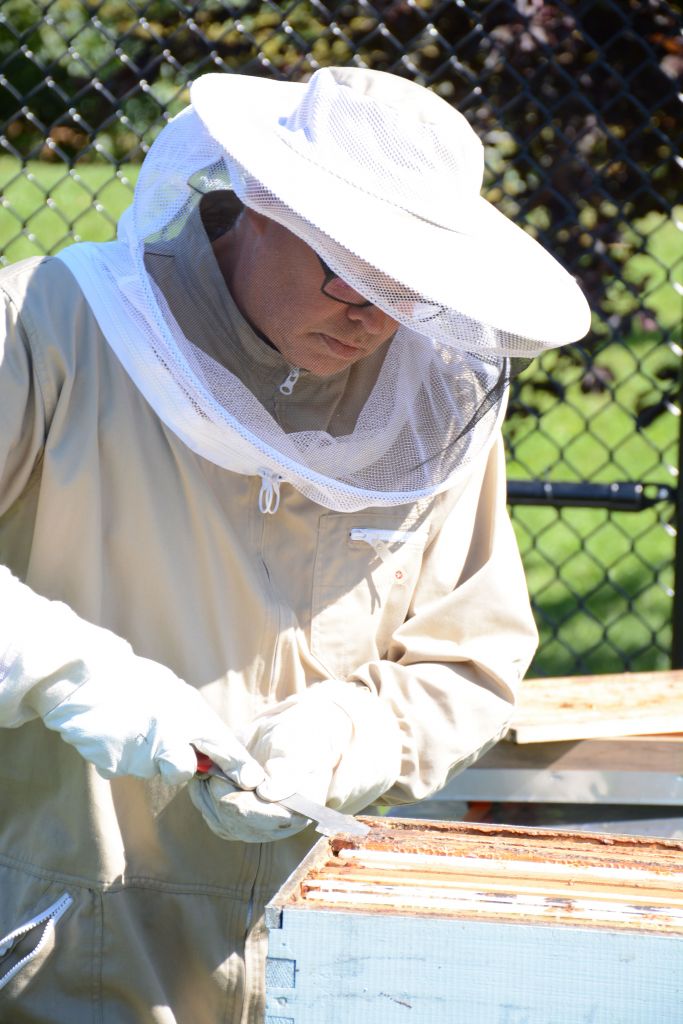One of the new additions to Algonquin this year is tucked behind the V-building and houses an army of 25-50,000 residents who worship a Queen.
As announced at the president’s breakfast on Aug. 25, two bee hives are now situated on campus after arriving just days before. The hives are tended to by a team of culinary arts professors and “bee-boys;” Daniel Halden, David Fairbanks, Steve Price, Scott Warrick and Sean Edwards.
Although culinary arts may not be the first program you would expect to be working with the bees, Halden suggests it has everything to do with the farm to Fork course he teaches.
“For our students to taste raw honey and be able to tell the difference is one thing,” he said. “The other thing is the declining number of bees in Ontario due to colony collapse.”
Honey bees have been making headlines since 2013 when Ontario’s bee population took the largest hit on record. According to the CAPA (Canadian Association of Professional Apiculturalists) 2015 winter loss report, losses have decreased since then from 58 per cent to 38 per cent.
It was in 2014 that each of the five professors enrolled in Algonquin’s urban beekeeping course taught by beekeeper Paul Lacelle. The Hospitality and Tourism department purchased the hives from Lacelle’s Apiary and Beekeeping Supplies, just outside of Carleton Place.
While the culinary professors did feel a need to do their part to combat depletion rates, they also saw the opportunity to introduce honey bees as a way to teach students how to sustainably work with their product.
“Really, the honey production is secondary. It’s the pollination we need,” said Fairbanks.
This is a central topic to the urban beekeeping course as well, which has seen a growing interest since its launch three years ago. Lacelle attributes this spike in interest to the attention the decline in the honey bee population has received.
“People didn’t know that one-third of the food we eat is from honey bees, from pollination,” he said. “And a lot of people didn’t know that pollination is a $1 billion industry in Ontario.”
Lacelle has seen this growth in beekeeping first-hand over his 25-plus years experience, and by giving workshops throughout the summer.
“It started getting too busy so I thought maybe I should get a course set up,” said Lacelle. “Typically I was teaching only in the spring but there’s been so much demand that we started earlier.”
This year the course is sold out.
This is a growing operation at Algonquin as well with two more hives expected to reach campus sometime in the next few weeks.
The culinary program will be the only one on campus directly working with the bees for now. But as Halden suggests, there are multiple uses for other programs to utilize the honey bees as well.
“The vet-tech people were excited to hear that we had the bees here for the antiseptic qualities that honey has,” said Halden.
The hives were purchased with a more laid-back, Italian varietal of bees that produce more honey. At the moment the honey is not available for purchase but is being considered for the future, said Halden. “People get a lot out of the whole honey-comb, you really get the idea of where it came from.”
This is one way the honey may eventually be packaged to the public. The other would require grading and licensing to make it available for sale which has not yet been decided.


